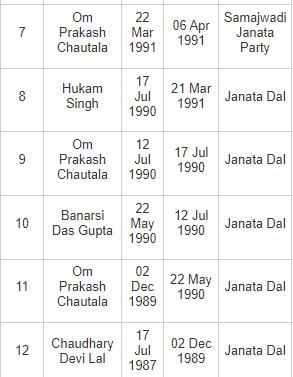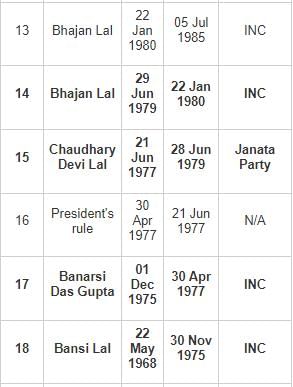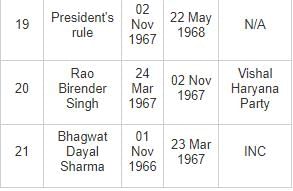Software Development Exam > Software Development Tests > HTET: Haryana G.K and Awareness (Polity) - Software Development MCQ
HTET: Haryana G.K and Awareness (Polity) - Software Development MCQ
Test Description
10 Questions MCQ Test - HTET: Haryana G.K and Awareness (Polity)
HTET: Haryana G.K and Awareness (Polity) for Software Development 2025 is part of Software Development preparation. The HTET: Haryana G.K and Awareness (Polity) questions and answers have been prepared
according to the Software Development exam syllabus.The HTET: Haryana G.K and Awareness (Polity) MCQs are made for Software Development 2025 Exam.
Find important definitions, questions, notes, meanings, examples, exercises, MCQs and online tests for HTET: Haryana G.K and Awareness (Polity) below.
Solutions of HTET: Haryana G.K and Awareness (Polity) questions in English are available as part of our course for Software Development & HTET: Haryana G.K and Awareness (Polity) solutions in
Hindi for Software Development course.
Download more important topics, notes, lectures and mock test series for Software Development Exam by signing up for free. Attempt HTET: Haryana G.K and Awareness (Polity) | 10 questions in 5 minutes | Mock test for Software Development preparation | Free important questions MCQ to study for Software Development Exam | Download free PDF with solutions
Detailed Solution for HTET: Haryana G.K and Awareness (Polity) - Question 1
HTET: Haryana G.K and Awareness (Polity) - Question 2
Which of the following statement is TRUE regarding Judiciary?
Detailed Solution for HTET: Haryana G.K and Awareness (Polity) - Question 2
HTET: Haryana G.K and Awareness (Polity) - Question 3
When was the Haryana Agricultural Produce Market Act introduced?
Detailed Solution for HTET: Haryana G.K and Awareness (Polity) - Question 3
HTET: Haryana G.K and Awareness (Polity) - Question 4
Funds of authority are defined in which of the following sections of the Haryana Panchayati Raj Act, 1994?
Detailed Solution for HTET: Haryana G.K and Awareness (Polity) - Question 4
HTET: Haryana G.K and Awareness (Polity) - Question 5
Which article deals with the Ordinance making power of the Governor?
Detailed Solution for HTET: Haryana G.K and Awareness (Polity) - Question 5
HTET: Haryana G.K and Awareness (Polity) - Question 6
Arrange the Chief Ministers of Haryana in chronological order from the following:
- Bansilal
- B. D. Gupta
- Devi Lal
- Bhajan Lal
Detailed Solution for HTET: Haryana G.K and Awareness (Polity) - Question 6
HTET: Haryana G.K and Awareness (Polity) - Question 7
Which of the following Article is related to the Amendment of Constitution?
Detailed Solution for HTET: Haryana G.K and Awareness (Polity) - Question 7
HTET: Haryana G.K and Awareness (Polity) - Question 8
Which of the following is a state political party in Haryana?
Detailed Solution for HTET: Haryana G.K and Awareness (Polity) - Question 8
HTET: Haryana G.K and Awareness (Polity) - Question 9
Bhopal Singh Khadri is the Chairman of the Haryana Staff Selection Commission. What is means by 'Khadri'?
Detailed Solution for HTET: Haryana G.K and Awareness (Polity) - Question 9
HTET: Haryana G.K and Awareness (Polity) - Question 10
Which of the following language is declared as the second official language of Haryana?
Detailed Solution for HTET: Haryana G.K and Awareness (Polity) - Question 10
Information about HTET: Haryana G.K and Awareness (Polity) Page
In this test you can find the Exam questions for HTET: Haryana G.K and Awareness (Polity) solved & explained in the simplest way possible.
Besides giving Questions and answers for HTET: Haryana G.K and Awareness (Polity), EduRev gives you an ample number of Online tests for practice
Download as PDF






















